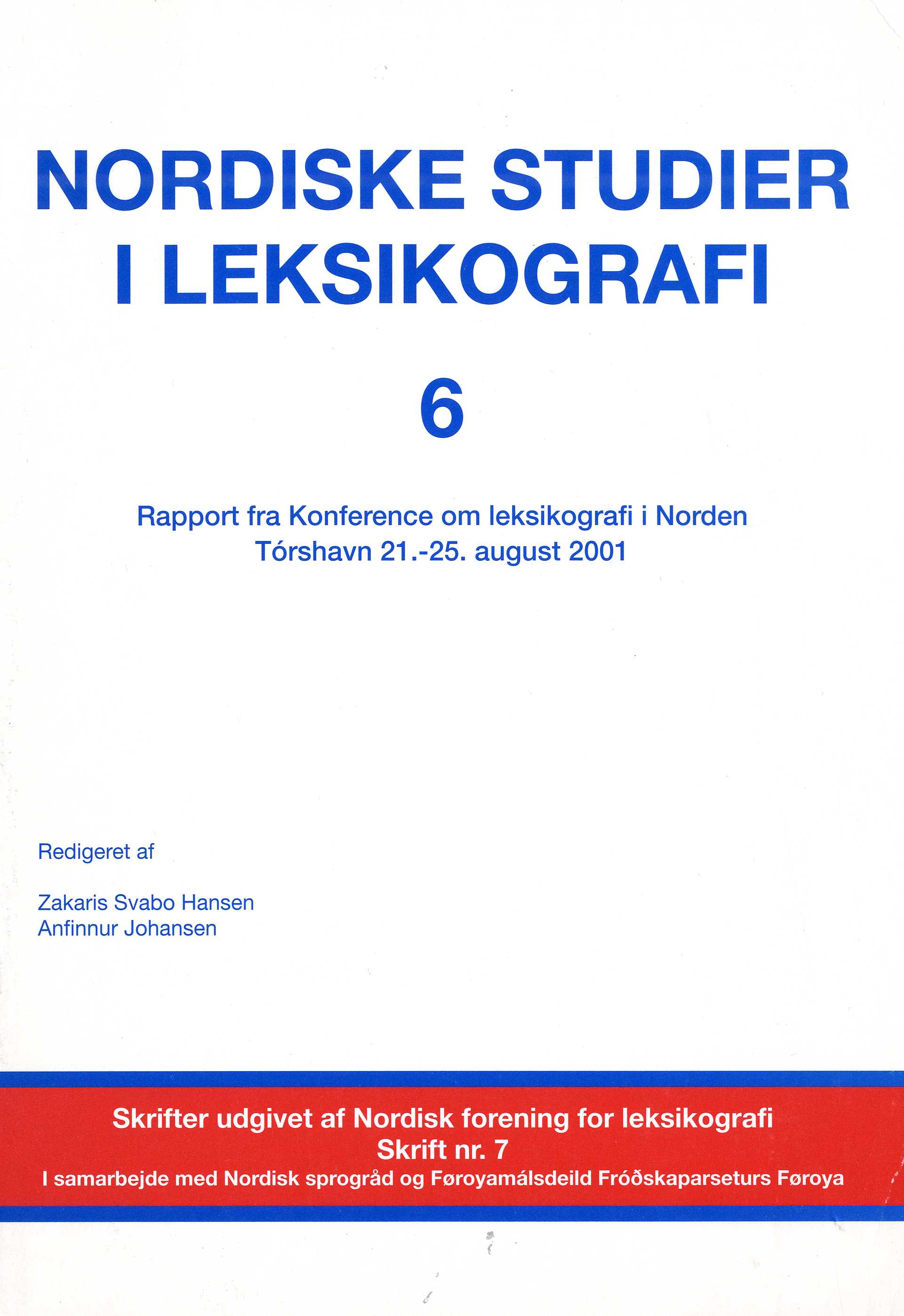Orddannelse i Ømålsordbogen
Abstract
This paper deals with the description of word formation in a Danish dialect dictionary, Ømålsordbogen (Dictionary of the Insular Dialects). It focuses on how productivity is described in suffix entries and on the selection of complex words. Ømålsordbogen mainly covers the period 1850 to 1920. Being a historical dictionary at least to some extent, Ømålsordbogen presents us with the problem how to determine whether a given pattern is productive or not in spoken language from an earlier date where productivity cannot be examined directly. Ømålsordbogen deviates from usual lexicographical principles of headword selection by including a large number of completely transparent complex words. The reason for this is, firstly, that the intention is to make the dictionary a source for linguistic studies, secondly, especially regarding compounds, that Ømålsordbogen makes a point of cultural anthropological description, therefore including more encyclopaedic information than used to be the case in dictionaries.Downloads
Published
2003-01-01
How to Cite
Gudiksen, A. (2003). Orddannelse i Ømålsordbogen. Nordiske Studier I Leksikografi, (6). Retrieved from https://tidsskrift.dk/nsil/article/view/19393
Issue
Section
Artikler
License
Nordisk Forening for Leksikografi/NSL og forfatterne.





